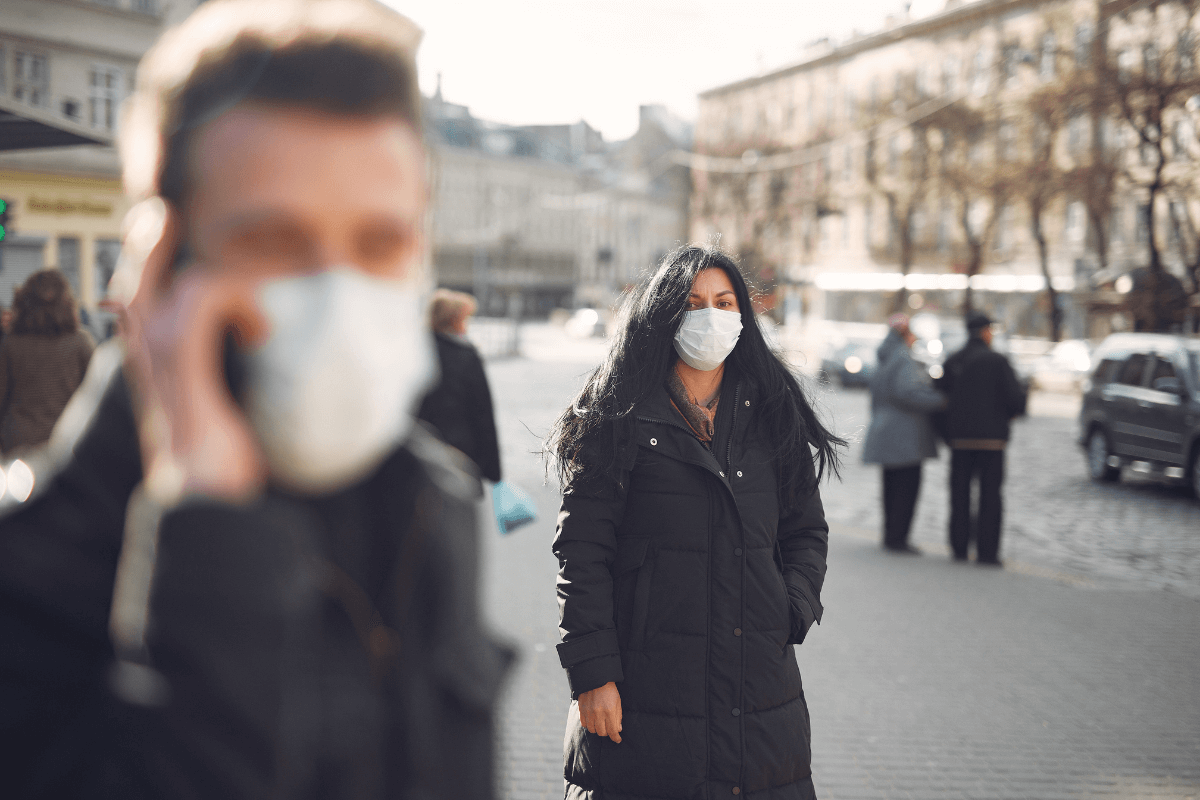How the Pandemic is Affecting Mental Health and Addiction – Would You Know When It Was Time to Find Help?
While we work to fight the virus, other unseen enemies like anxiety, depression, and addiction have infiltrated our lives. Issues related to mental health and addiction have increased during the pandemic.
Covid-19 has altered life on many significant levels since its arrival. The virus roared onto the global scene and brought along with it a deluge of change for people across the nation.
Unexpected Change
As businesses and schools shut down, transitioning daily routines to new and unfamiliar spaces became the new normal. Seemingly overnight, homes were transformed into classrooms and offices. Families and couples found themselves together 24/7. People that were living alone were just as quickly cut off from social circles.
The pandemic has slowed life down. Terms like social distancing have been integrated into our shared vernacular. While quarantines are designed to keep virus spread at bay, it has also been a cause of increased loneliness in the population.
Everyone has likely experienced some level of isolation during the pandemic. The severity of loneliness can look a bit different across age groups, professions, and even genders.
Mental Health and Addiction Factors Facing Young Adults
According to a recent national survey, 4 out of every 10 adults in the United States has reported increased feelings of anxiety and depression as a result of the pandemic. [1] This is four times greater than the statistics that were reported pre-pandemic in 2018 and early 2019.
Young adults between the ages of 18 and 24 have been particularly prone to mental health disorders during this unprecedented time. [2] In many cases, mental health struggles in young adults are seen to manifest through increased substance use and abuse.
Nearly twice the number of young adults in the United States – as compared to all adults surveyed – reported an increase in suicidal thoughts and substance use. Much of this is being attributed to the closing of universities, transitions to more isolated remote workplaces, and overall income loss.
How Women Have Been Affected in the Pandemic
Another core demographic to consider when looking at mental health and addiction factors during the pandemic is women. More women are reporting mental health challenges than men overall. This is a trend that has remained steady throughout the pandemic.
Nearly 47% of women (as compared to 38% of men) have reported increased depression and anxiety symptoms during the pandemic. [3] Some of this may be directly related to the economic impact and subsequent job losses associated with schools and work moving online.
Throughout the pandemic, women have lost significantly more in the way of employment than their male counterparts. The Center for American Progress estimates that women have lost 5.4 million jobs since the arrival of Covid-19. [4]
The stress of these changes, paired with the financial impact of a job loss, are intricately linked. Ultimately, they’re leading to women experience heightened emotional pressures that show up as a form of anxiety or depression.
Considering the Mental Health of Essential Workers
There’s no denying that Covid-19 has put questions and doubts in the minds of everyone. Worry surrounding the virus has caused an increase in anxiety and depression among essential workers in particular.
The pressure of going out into the world and potentially being exposed to the virus daily is often a factor in increased anxiety amongst essential workers. Specifically, 25% of essential workers report increased substance use as a result of these pressures, compared to an 11% hike in their counterparts who are working from home. [5]
Visible Links to Addiction Rates
With so much uncertainty surrounding Americans over the past year, the pandemic has been linked to a clear rise in substance use and addiction rates nationwide. As of June 2020, the Center for Disease Control and Prevention reported that 13% of Americans were using substances as a way to directly deal with stress. [6]
An increase in addiction saw overdose rates on the rise across the country, as well. The reporting system ODMAP showed early on that only months into the pandemic, America was seeing an 18% increase in overdoses when compared to the same timeframe in 2019. [7]
Benefits of Dual Diagnosis
The pandemic has shown us just how interconnected life is. It doesn’t take much for a virus to spiral out of control when only one safety factor is left unaccounted for. The same can be said for mental health and addiction diagnosis.
With numbers in both categories on the rise, it’s important to recognize how vital dual diagnosis treatment is when it comes to successfully treating a mental health condition that can lead to addiction down the road. Understanding that the two work hand-in-hand is key to managing stress without substance use.
Setting up preventative measures to avoid addiction patterns can greatly increase the effectiveness of a treatment for a mental health disorder. Understanding that mental health and addiction work hand-in-hand is the key to managing stress without substance use.
Find Relief and Freedom from Addiction
The pandemic has emphasized issues related to loneliness, anxiety, and depression in new ways for many people across the country. When you’re looking to break these cycles through holistic care, the professionals at Spring Gardens Recovery can help. Reach out today to learn more about our programs and services.
Sources:
[1] Adults Reporting Symptoms of Anxiety or Depressive Disorder During COVID-19 Pandemic | KFF, https://www.kff.org/other/state-indicator/adults-reporting-symptoms-of-anxiety-or-depressive-disorder-during-covid-19-pandemic/ [2] Mental Health -Household Pulse Survey – COVID-19 (cdc.gov), https://www.cdc.gov/nchs/covid19/pulse/mental-health.htm [3] How the COVID-19 Pandemic is Affecting People’s Mental Health and Substance Use | KFF, https://www.kff.org/coronavirus-covid-19/press-release/how-the-covid-19-pandemic-is-affecting-peoples-mental-health-and-substance-use/ [4] When Women Lose All the Jobs: Essential Actions for a Gender-Equitable Recovery – Center for American Progress, https://www.americanprogress.org/issues/women/reports/2021/02/01/495209/women-lose-jobs-essential-actions-gender-equitable-recovery/ [5] Taking Stock of Essential Workers | KFF, https://www.kff.org/policy-watch/taking-stock-of-essential-workers/ [6] Mental Health, Substance Use, and Suicidal Ideation During the COVID-19 Pandemic — United States, June 24–30, 2020 | MMWR (cdc.gov), https://www.cdc.gov/mmwr/volumes/69/wr/mm6932a1.htm [7] COVID-19 Impact on US National Overdose Crisis – ODMAP, http://www.odmap.org/Content/docs/news/2020/ODMAP-Report-June-2020.pdf

